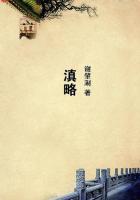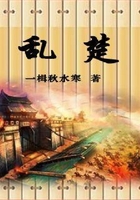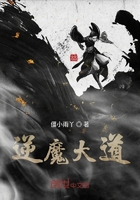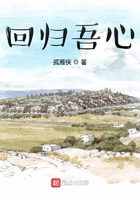An analogous condition, but of a far more complex kind, exists at the present day in our own societies.Our material environment differs in every respect from that of our grandparents, and bears little or no resemblance to that of a few centuries ago.Here and there, even in our civilised societies in remote agricultural districts, the old social conditions may remain partly undisturbed; but throughout the bulk of our societies the substitution of mechanical for hand-labour, the wide diffusion of knowledge through the always increasing cheap printing-press;the rapidly increasing gathering of human creatures into vast cities, where not merely thousands but millions of individuals are collected together under physical and mental conditions of life which invert every social condition of the past; the increasingly rapid means of locomotion; the increasing intercourse between distant races and lands, brought about by rapid means of intercommunication, widening and changing in every direction the human horizon--all these produce a society, so complex and so rapidly altering, that social co-ordination between all its parts is impossible;and social unrest, and the strife of ideals of faiths, of institutions, and consequent human suffering is inevitable.
If the ancient guns and agricultural implements which our fathers taught us to use are valueless in the hands of their descendants, if the samplers our mothers worked and the stockings they knitted are become superfluous through the action of the modern loom, yet more are their social institutions, faiths, and manners of life become daily and increasingly unfitted to our use; and friction and suffering inevitable, especially for the most advanced and modified individuals in our societies.This suffering, if we analyse it closely, rises from three causes.
Firstly, it is caused by the fact that mere excessive rapidity of change tends always easily to become painful, by rupturing violently already hardened habits and modes of thought, as a very rapidly growing tree ruptures its bark and exudes its internal juices.
Secondly, it arises from the fact that individuals of the same human society, not adapting themselves at the same rate to the new conditions, or being exposed to them in different degrees, a wide and almost unparalleled dissimilarity has today arisen between the different individuals composing our societies; where, side by side with men and women who have rapidly adapted or are so successfully seeking to adapt themselves to the new conditions of knowledge and new conditions of life, that, were they to reappear in future ages in more co-ordinated societies, they might perhaps hardly appear wholly antiquated, are to be found men and women whose social, religious, and moral ideals would not constitute them out of harmony if returned to the primitive camps of the remote forbears of the human race; while, between these extreme classes lies that large mass of persons in an intermediate state of development.This diversity is bound to cause friction and suffering in the interactions of the members of our societies; more especially, as the individuals composing each type are not sorted out into classes and families, but are found scattered through all classes and grades in our societies.(One of the women holding the most advanced and modern view of the relation of woman to life whom we have met was the wife of a Northamptonshire shoemaker; herself engaged in ****** her living by the sewing of the uppers of men's boots.) Persons bound by the closest ties of blood or social contiguity and compelled to a continual intercourse, are often those most widely dissevered in their amount of adaptation to the new conditions of life; and the amount of social friction and consequent human suffering arising from this fact is so subtle and almost incalculable, that perhaps it is impossible adequately to portray it in dry didactic language: it is only truly describable in the medium of art, where actual concrete individuals are shown acting and reacting on each other--as in the novel or the drama.We are like a company of chess-men, not sorted out in kinds, pawns together, kings and queens together, and knights and rooks together, but simply thrown at haphazard into a box, and jumbled side by side.In the stationary societies, where all individuals were permeated by the same political, religious, moral, and social ideas; and where each class had its own hereditary and fixed traditions of action and manners, this cause of friction and suffering had of necessity no existence; individual differences and discord might be occasioned by personal greeds, ambitions, and selfishnesses, but not by conflicting conceptions of right and wrong, of the desirable and undesirable, in all branches of human life.(Only those who have been thrown into contact with a stationary and homogeneous society such as that of primitive African tribes before coming in contact with Europeans; or such as the up-country Boers of South Africa were twenty years ago, can realise adequately how wholly free from moral and social problems and social friction such a society can be.It is in studying such societies that the truth is vividly forced on one, that the key to half, and more than half, of the phenomena in our own social condition, can be found only in our rapidly changing conditions necessitating equally rapid change in our conceptions, ideals, and institutions.)Thirdly, the unrest and suffering peculiar to our age is caused by conflict going on within the individual himself.So intensely rapid is the change which is taking place in our environment and knowledge that in the course of a single life a man may pass through half a dozen phases of growth.















